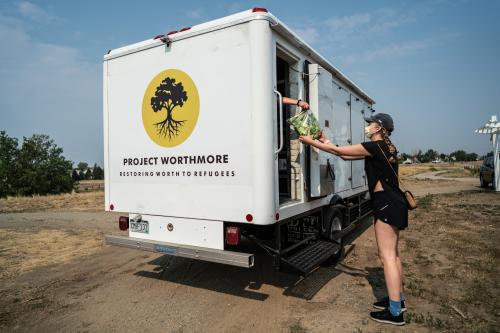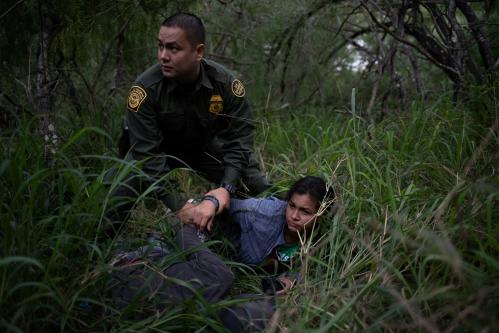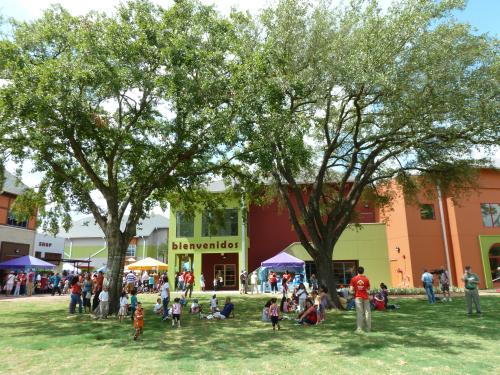In addition to a national government, civil society and the internally displaced themselves are major stakeholders in the search for durable solutions for the displaced. Indeed, as Walter Kälin points out, the most effective way of ensuring that governmental policies are well founded, well informed, and also sustainable is through close consultation with these other actors.
Thank you for inviting me to speak today on the role of civil society in addressing the problem of internal displacement. When I visited Turkey last year, I was impressed by the willingness of the Government openly to discuss the problem of internal displacement, acknowledge the need for national dialogue and seek to develop new strategies for dealing with the return, rehabilitation and reintegration of the hundreds of thousands of men, women and children displaced internally. Internal displacement, whether in Turkey or other parts of the world, is a phenomenon that requires national acknowledgement of the problem together with the adoption of national policies and strategies developed in consultation with national actors.
In the national setting, beyond the government, the major stakeholders are internally displaced communities and civil society. Indeed, the most effective way of ensuring that governmental policies are well founded, well informed and also sustainable is through close consultation with these other actors. Policies and programs responsive to the major needs of the displaced are the best means of creating a national consensus around the issue and laying the foundation for peace and stability. The Guiding Principles on Internal Displacement, an important international framework for the protection of internally displaced persons, call for the full participation of internally displaced persons in the planning and management of their return or resettlement as essential features of the return and reintegration process. Indeed, it is their right to request and receive protection and humanitarian assistance from national authorities.
Consultation with civil society and the displaced is essential to the success of any program. The Government of Turkey already is cooperating with academic institutions in developing a national response to internal displacement. Most notably, the Institute of Population Studies at Hacettepe University has been working to develop credible and well-documented information on the numbers and situation of the displaced. This is essential because of the complexities involved in establishing the nature and scope of the displacement problem and the need of the government to base its policies upon objective and detailed knowledge of the facts. Government cooperation with the University is an excellent example of the value of relying on an independent, academic institution to provide the needed information base. I had the opportunity last year to participate in a stimulating workshop organized by the Institute of Population Studies about the “Migration and Internally Displaced Population Survey” being undertaken. The Institute also contributed its ideas to developing an improved translation of the Guiding Principles into Turkish, which benefited all those engaged with the displacement issue. Being able to work in full independence and according to the highest academic standards are of course essential to the University’s ability to make such contributions.
Other Turkish research institutions have also been playing an important role in contributing to policy development. The Turkish Economic and Social Studies Foundation (TESEV), for example, recently produced a report entitled “The Problem of Internal Displacement in Turkey: Assessment and Policy Proposals.” It looks at the social, political, psychological, and legal aspects of displacement and comes up with a series of policy recommendations encompassing return, socio-economic development, training, restitution and compensation, health and psychosocial rehabilitation, and reconciliation. The group’s orientation, according to the report, diverges from “state-centered modes of thinking.” This means that it is exploring new ideas and new thinking for dealing with displacement issues. Policymakers may not agree with all of their proposals but should find the report stimulating. Fresh approaches from academics and lawyers with the time and professional skills to conduct research and analysis and to do what is called “thinking outside the box” can prove enriching.
Of course, none of us likes criticism, especially governments, but critical thoughts and new strategies are essential for achieving change and moving forward along the path of reform. At the same time, it is not only governments that must be respectful. Research institutions, to be credible and gain the ear of the government, must live up to certain standards as well. They must be objective and impartial, not favor ideological positions or reflect political or ethnic biases. Indeed, their integrity and independence must be their foundation. When non-governmental organizations fail to live up to the standard expected of them, they undermine not only their own reputation but also can tarnish the overall reputation of the non-governmental community. It is important that governments not judge all of civil society by the shortcomings of a few.
Non-governmental organizations have an important role to play in addressing situations of internal displacement. In many countries, they play a dynamic and vibrant role at the national and local level in raising awareness to the problem of displacement and mobilizing support for policies and laws. One cannot but be heartened by the work that a small group can do to focus attention on the uprooted in a country and promote better policies and programs for vulnerable populations. NGOs also enjoy better access to internally displaced populations than governments and gain their trust. They can help achieve compromises and solutions that governments may not be able to attain. NGOs can play many roles, including monitoring, training, advocacy, mediating, providing relief and encouraging reconciliation. Rather than being perceived as opponents of the state, they should be seen as strengthening and supporting the state.
To play their role effectively, NGOs at times need training. For example, NGOs and lawyers groups might find it useful to become more knowledgeable about Law No 5233, entitled Compensation or Damages Arising from Terror and Combating Terror. They can thus help displaced persons to use the law effectively.
Most important is for governments and civil society to have regular mechanisms for consultation. Similarly, methods of consultation with internally displaced persons and their representatives should be made systematic. Too often, governments and international organizations develop policies and programs for IDPs without consulting them adequately. This in turn produces policies and programs that are not sufficiently responsive to their needs. In Turkey, it would be important to ensure that development plans in areas of return are discussed with displaced persons. The reconstruction of infrastructure and houses, for example, may not be sufficient to encourage IDPs to return home if they did not also have adequate access to their fields and livelihoods.
Media is another important way of addressing internal displacement. Journalists and media can turn a spotlight on the problem, highlight new ideas and approaches, and report on the efforts of governments to deal with displaced populations. They can make a national forum or dialogue more successful by bringing it into news stories, television and radio programs and mobilizing public support for dealing with the problem. The United Nations and the Government of Turkey have been discussing a public relations campaign that will disseminate the Guiding Principles on Internal Displacement in Turkish as well as leaflets and flyers explaining the rights of IDPs and the obligations of governments toward these populations. Enlisting the media in such a campaign can be highly beneficial.
An open society is one in which ideas are welcomed, not feared. It is one in which diversity is celebrated, not rejected, and in which both minorities and majorities can live together peaceably based on tolerance and respect. Internal displacement is but a symptom of tensions and divisions within a society that need to be addressed. Ending internal displacement will be an important step in strengthening Turkish society and reinforcing Turkey’s reputation in the international community.



Commentary
The Voice of Civil Society and the Internally Displaced in Turkey
February 23, 2006